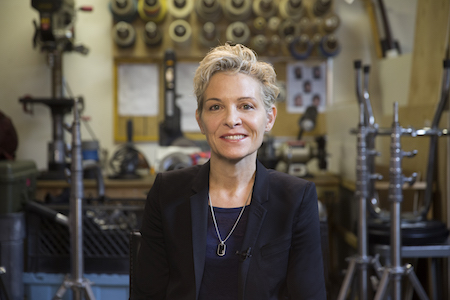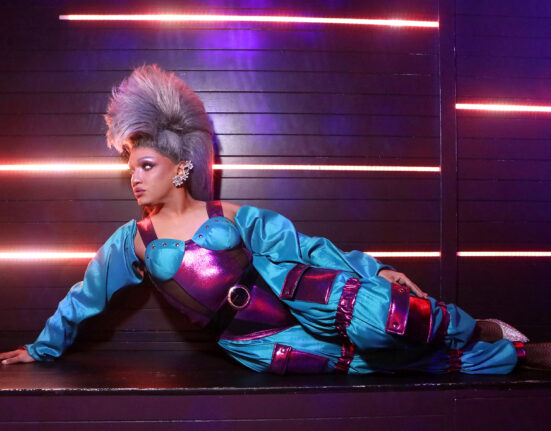Director C. Fitz talks to Lovari about the documentary Jewel’s Catch One, distributed by Academy Award nominee Ava DuVernay’s “ARRAY”, available on Netflix.

The idea to document both the beloved club and its owner was a perfect pairing. What initially inspired you to embark on this project?
I was directing a shorter piece for the LA LGBTQ center Award Gala. They were honoring Jewel as a local community leader. Each year I donated my time to this charity and the first time I met Jewel and learned of the history behind the legendary Catch One and all the lives she and this story had touched I knew the film needed be made. I call it a type of unwritten textbook that everyone should read/see and be witness to the amount of work that went into holding on to this legendary space for over 4 decades and Jewel’s activism and service to her community. It amazed me the amount of people that were touched by Catch One and how it became a home for not only the Black LGBTQ community, but all walks of life that have been through those doors.
In addition to being a female African American LGBT business owner, facing obstacles that were unfortunately very prevalent in the 1970s and 1980s, there are many other things that Jewel accomplished as well (opening up a health center; self-taught construction skills; fundraising; dj’ing). Of all of these admirable feats, which one surprised you the most?
One of the most admirable and inspirational ‘feats’ would be Jewel going back to school and starting a new career at age 56! Jewel wanted to continue serving her community outside the walls of CATCH ONE and went back to school to study Traditional Chinese Medicine. Opening her own clinic “The Village Health Foundation,” which she still works in today, is just an outstanding life of service. It shows us all (and our film’s audience) that you should follow your dreams at every age and follow your heart to realize your passions!
You had hours of footage to choose from. As a viewer, I am impressed with how seamlessly you touched upon so many issues within the duration of the film – female entrepreneurship, racism, the AIDS crisis, homophobia, LGBT rights, friendships, relationships, and music. How was the editing process for you and your team?
Thank you Lovari. It is quite the massive group of stories and history to tell in one film and I wanted to take great care in telling it right, as well as, design the soundtrack and frames in a style that would do this film justice and entertain audiences of all kinds, so that took time. It was important that this history was represented and not lost. I was especially touched by the AIDS Crisis stories and how many people were affected, still affected, and how fearless Jewel was during a very scary time for us.
I feel this chapter in the film is a very powerful one that tells a story FOR so many to our future. With all our research and collection of photos, original and archival footage crafting the four decades into an 85-minute documentary took about 2 years. The hardest part for me was cutting the footage and stories for time. However, it was an amazing process and we had a tiny amazing crew of researchers, producers and editors that helped me make the 8 year journey the film it is today. Being distributed by Ava DuVernay’s ARRAY, and on Netflix, is a wonderful part of finishing this film.
There is so much amazing music in Jewel’s Catch One, and fantastic interviews with some of the greatest artists of the disco era. In addition, you have one of the greatest actors of the modern era, Sharon Stone, who frequented the club and tells of her experiences with it. Interestingly enough, she is one of the music sponsors of the film. Tell me how that came about!
Yes, Sharon Stone coming on board to participate and support the film was a wonderful gift! Her voice as a global advocate to raise awareness about AIDS and AIDS research (as well as a patron on some nights) helped tell the story of what a safe-space Catch One had become for so many, and her interviews shed light on the importance of Jewel’s work in the Los Angeles Black LGBTQ community during the AIDS Crisis, plus how important everyone’s individual work (and giving back) can help us all from a global perspective. We are grateful for all of her support!


Leave feedback about this
You must be logged in to post a comment.